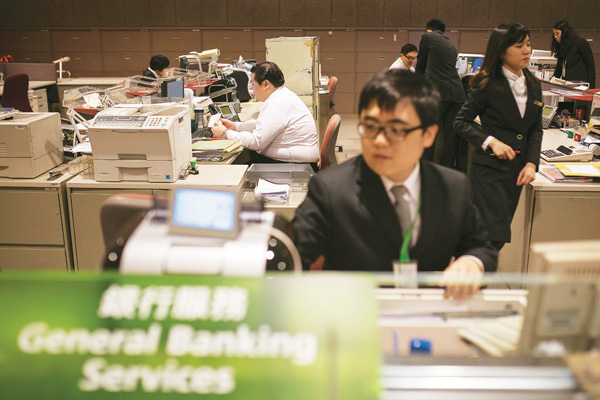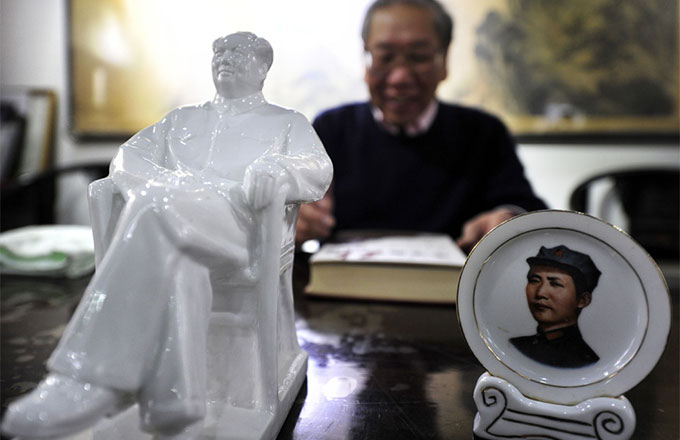HK investment gurus 'possess more work drive'
 |
|
Purpose, habit and incentives, or “phi”, as identified by State Street Corporation and the CFA Institute, could affect professionals’ performance and investment returns. However, Hong Kong investment professionals’ “phi” score is relatively low. (Billy H.C. Kwok / Bloomberg) |
The study, entitled “Discovering Phi — Motivation as the Hidden Variable of Performance”, identified “phi”, which stands for purpose, habit and incentives, as the yardstick for determining how professionals’ motivations in the industry affect their performance and investment returns.
According to the report, a one-point increase in “phi” is associated with 28-percent greater odds of excellent organizational performance.
The Center for Applied Research — an independent think tank of SSC — and the CFA Institute had been working on the project for 18 months, interviewing investment professionals across 20 countries.
“A more competitive financial environment turns out to have lower ‘phi’”, said Suzanne Duncan, global head of the research center at SSC.
Hong Kong turned out to be a city with lower “phi”, compared with most other cities surveyed within the Asia Pacific region, while the Asia-Pacific region has the second-highest “phi” globally after the Americas. Within the region, asset managers are leading the way in “phi”, followed by asset owners and insurance firms. And, women had a higher “phi” score than men.
The SAR’s relatively lower “phi” score could be the result of the short-term pressures being felt by professionals in the investment industry, according to the report. The research shows that when there’s a lack of purpose to temper passion, the balance and alignment of interests and motivations become distorted and, ultimately, the most fragile things in the environment bear the brunt of the harm.
About 90 percent of the respondents cited pressure, including concerns about losing their job after a short period of underperformance, from members of their companies’ board and management team as negatively affecting decision making. Nearly half of those polled cited career risk concerns as a short-term pressure in Hong Kong, versus 26 percent in the Asia Pacific region, 11 percent in the Americas and 16 percent in EMEA (Europe, the Middle East and Africa).
The good news for the Hong Kong investment industry is that almost half of the investment professionals interviewed said they pursued a career in investment management because they are passionate about the financial markets.
However, only 14 percent of the Hong Kong respondents said they have remained in the investment management industry for the purpose of helping clients achieve their financial goals, while only 7 percent said they wanted to contribute to economic growth.
Duncan said Hong Kong’s investment industry has a significant opportunity to improve on “phi”, starting with recruitment and leadership.
As for leadership, according to the report, only 39 percent of professional investors believed that their leaders articulate a compelling vision, and 36 percent agreed that leaders talk to employees about their most important values and beliefs. Another 31 percent believed that leaders are spending time teaching and coaching employees, while almost half of the professional investors thought that their leaders re-examine critical assumptions and beliefs.
SSC and the CFA Institute are jointly organizing roadshows among financial institutions and the media with the aim of drawing the public’s attention to the issue, Duncan added.
Paul Smith, president and CEO at the CFA Institute, believes that by focusing on “phi”, investment professionals are not merely restoring balance to the industry, but are “making it easier for everything within our ecosystem to find new ways of flourishing, new ways of capturing alpha”.
tingduan@chinadailyhk.com


















